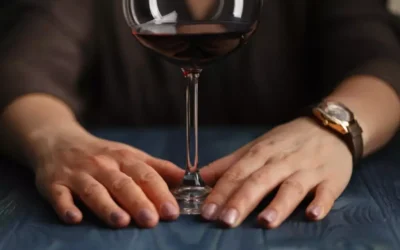Peer pressure can play on certain strengths or challenges that an adolescent already faces. From the beginning, parents work to teach their children how to make healthy decisions. But as children age, parents’ influence decreases and the opinion of peers becomes more and more important. Social pressure can affect a wide range of thoughts, actions and behaviors, from academic performance to substance use to mental health.
Share this page

Children’s Health offers one of the most comprehensive specialty programs available for children and teens who need psychiatry and psychological services. We’re recognized experts on treating eating disorders, depression and other mood disorders. Positive peer pressure can foster sense of belonging, self-confidence and a solidified sense of self. Some kids give in to peer pressure because they want to be liked or they think it helps them fit in.
Set Boundaries and Expectations
- Maybe a kid in your science class taught you an easy way to remember the planets in the solar system.
- Through your steadfast presence, you become a reliable anchor in their journey, helping them navigate the complexities of peer pressure with resilience and confidence.
- Encouraging open conversations about friends and experiences allows parents to understand their child’s social dynamics.
- We often think of peer pressure as being something that mainly affects younger people.
- It doesn’t take long for children to learn that life is full of choices.
- Not so easy when teens feel their peer relationships may be at stake.
However you’re feeling, there are people who can help you if you are struggling. If they pressure you to do shots with them at the bar when you aren’t drinking, for example, you might suggest that you both hit the dance floor instead. Or maybe, you make a plan to go on a hike or to the movies the next time you hang out. That way, you’re fulfilling both of your needs in a mutually beneficial way.

Teen Peer Pressure and Social Media
They can provide advice and help deal with pressure-filled situations. They gain the strength needed to say “No,” even if it may be unpopular with friends. ” to friends who engage in behavior we don’t like, that isn’t always realistic.
- The desire to belong, to be accepted, and to fit in is a fundamental human instinct, especially during the formative years of adolescence.
- Parenting is a journey filled with joys, but it also comes with its fair share of challenges.
- Turn to parents or guardians for backup while dealing with peer pressure situations that feel beyond your coping skills.
- To be honest, peer pressure is not something we can simply escape from.
- Below are some of the peer pressure examples which will help you in identifying the good and bad about how to tackle peer pressure in terms of its positive and negative side.
- Responses like “No thanks, I’ll pass” become handy scripts to draw upon if pressured later about uncomfortable things.
- Saying no while smiling and leaning into someone could send mixed signals.
Reevaluating Your Friendships
However, the quest for acceptance can sometimes lead our children’s down paths that don’t align with their authentic selves or our family values. See seven tips to help teens avoid negative peer pressure and respond in a healthy way. Just as in-person interactions can be both positive and negative, communication through social media can also have a positive or negative effect.
Blame Parents

The pressures might not always be obvious, but that doesn’t mean they’re not there. In fact, research suggests it’s more subtle forms of pressure that tend to lead people to drink more.1 And, if we’re not aware of them, we might be less likely to address them. Warning signs of negative peer pressure struggle might include sudden changes in behavior, withdrawal from family and hobbies, secretive behavior, or shifts in attitude towards school and values. Through your steadfast presence, you become a reliable anchor in their journey, helping them navigate the complexities of peer pressure with resilience and confidence.
Meet new potential friends through positive activities that interest you, or lean on family and childhood friends who’ve known the real you all along. Most importantly, true friendships arising from mutual care make you feel free as compared to those conditioned on some rules at the time of how to tackle peer pressure. If you feel which of the following is a type of indirect peer pressure? pressured by people to do things you’re uncomfortable doing, there are lots of ways to respond. Be prepared to deal with peer pressure by having a response ready. Avoid places where people do illegal activities or other things you feel uncomfortable around. Lean on people for support, like your friends, family, or a therapist.
3 Ways to Help Your Child Deal With Peer Pressure – Focus on the Family
3 Ways to Help Your Child Deal With Peer Pressure.
Posted: Wed, 21 Oct 2020 21:10:56 GMT [source]
This involves creating an atmosphere of trust and non-judgment, where children feel comfortable sharing their thoughts, concerns, and experiences. Parents can achieve this by actively listening to their children, validating their emotions, and refraining from immediate judgment or criticism. The Teen Recovery Program addresses both mental health and substance abuse issues in an intensive outpatient level of care setting specifically designed for teens.
Parents can help by encouraging the family to do interesting things together. Taking hikes, signing up for classes or playing board games together can help increase a sense of community and reduce the teen’s temptation to experiment out of boredom. Asking questions out loud to a friend or a group of peers when in a tough situation may help win allies and take some of the pressure off. For example, if teens are being pressured to shoplift, teach them things they can ask their peers. ” Hearing consequences said aloud can also get peers thinking and potentially changing their minds about the very thing they were pressuring others to do.